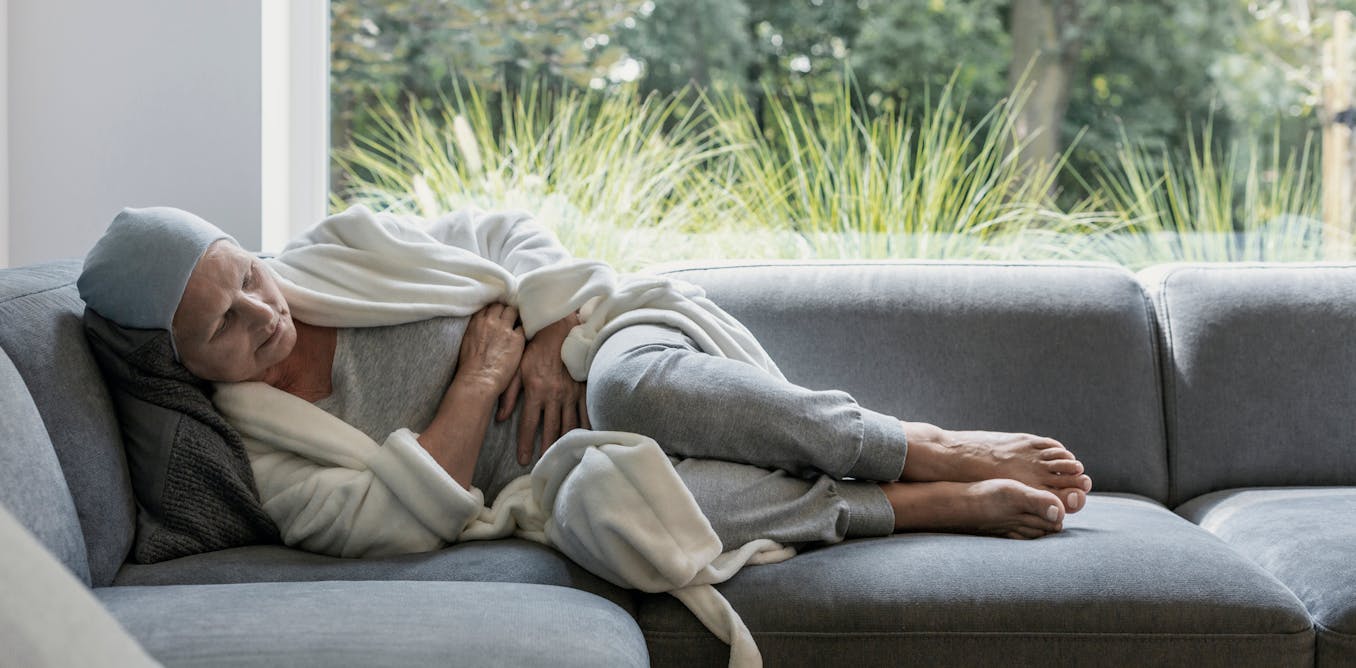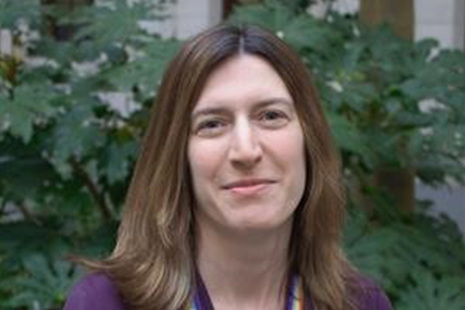
- Select a language for the TTS:
- UK English Female
- UK English Male
- US English Female
- US English Male
- Australian Female
- Australian Male
- Language selected: (auto detect) - EN
Play all audios:
While chemotherapy is a gruelling form of treatment in itself, the reduced immune system function that it causes can leave patients at risk from pathogens too. These illnesses can be
contracted from a range of sources, including food. We know that people undergoing chemotherapy are at an increased risk of foodborne illness. In fact, food poisoning such as
campylobacteriosis, listeriosis and salmonellosis are common among cancer patients. However, our research has found that chemotherapy patients may not be aware of the additional risks that
foodborne bacteria present. While anyone can have food poisoning, those who are undergoing chemotherapy treatment can be made seriously ill simply because the food they are eating isn’t
being handled properly. Foodborne infections can cause delays in treatment and potentially increase patient mortality. To reduce the chance of contracting a foodborne infection it is
essential that patients and those caring for them adhere to key food safety practices. As well as sticking to use-by dates, these practices include cleaning hands, surfaces and equipment,
cooking foods thoroughly, separating ready-to-eat food from raw food and keeping food at safe refrigeration temperatures. KEEPING PATIENTS SAFE Our previous research looked specifically at
the food safety information which is available to people receiving chemotherapy treatment from NHS hospitals. We found that a clear lack of consistent, correct and credible information on
the critical importance of food safety for chemotherapy patients. Exploring the issue further, we have been assessing what people receiving treatment and their families know about food
safety and how they implement this knowledge at home. As described in our recently published research, we found that although people receiving chemotherapy and their families are aware of
some food safety practices relating to refrigeration, cooking and cleaning, they are still following potentially unsafe practices when handling and storing food at home. The study involved
172 people, most of whom had received chemotherapy for treatment of cancer in the past three years. 51 of this number were family members, who had been responsible for preparing food for
partners or children during chemotherapy. We found that less than half of the people surveyed had received any information about food safety from healthcare providers. People with
neutropenia (an abnormally low level of white blood cells, which fight infections), blood-related cancers, or those that had received a transplant were significantly more likely of receiving
information on food safety. We presume this is because they are at an increased risk of infection, but haven’t conducted research with healthcare providers on this point specifically.
UNSAFE PRACTICES Although those that said they had received information were found to be more knowledgeable about food safety, gaps in their awareness and potential food safety malpractices
were still reported. In particular, we found that awareness of when to wash hands was very high and hand-washing practices were frequently reported to be implemented in the home. But the
reported hand-washing methods were inadequate. Only 58% reportedly rubbed their hands together and between fingers with soap for the recommended 20 seconds when washing. Most participants
also knew of the importance of ensuring fridges were kept at the right temperature (below 5°C) but only 35% said that they used a thermometer to check their own fridge was correct.
Similarly, with cooking, although the chemotherapy patients and family members knew to ensure food was cooked thoroughly, 78% said they never used a meat thermometer to make sure it was
done. We also found a particular issue in relation to raw poultry. Many participants thought that they needed to wash raw poultry (and did so). But washing poultry is a food safety
malpractice. Water splashes created when washing raw meat can result in the transfer of pathogens and cause cross-contamination in the kitchen. Looking to prepackaged foods, we found that up
to 40% relied upon, taste, smell or the look of food, rather than following use-by dates. Although food might appear ok, use-by dates are the only reliable way to ensure food safety. These
dates are determined by looking at bacteria growth to ensure that dangerous levels are not exceeded between when the product is made and consumed. We are now looking at how healthcare
providers can deliver credible and effective food safety information to those receiving chemotherapy and their families. But what we can tell from our research to date is that people
receiving chemotherapy need to be made aware just how critical food safety can be to their health.



